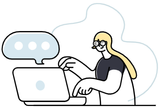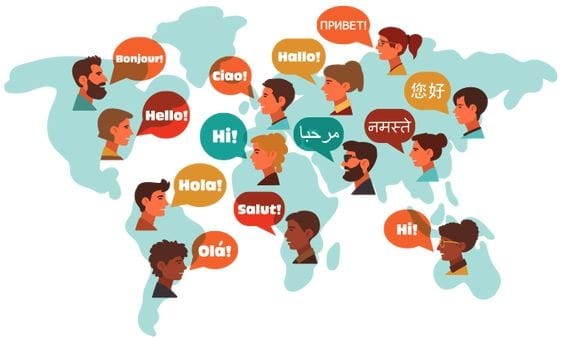The Power of Empathy: How Journaling Can Help You Connect with Others and Yourself

A recent article published by psychiatryonline.org titled "The Healing Power of Empathy and Love in Psychotherapy" (Johnson et al., 2024) highlights the transformative impact of empathy in therapeutic settings, emphasising its role in fostering deeper connections and facilitating emotional healing. This underscores what many of us intuitively understand: empathy, the cornerstone of meaningful human connections, allows us to bridge gaps, resolve conflicts, and create a more compassionate society. But how can we cultivate this essential skill? One powerful tool that's often overlooked is journaling. Let's explore how the simple act of putting pen to paper can dramatically enhance our capacity for empathy.
Understanding Empathy
Empathy is more than just sympathy or compassion. It's the ability to step into someone else's shoes, to see the world through their eyes, and to understand their emotions and experiences on a deeper level. Empathy allows us to:
- Build stronger relationships
- Improve communication
- Resolve conflicts more effectively
- Foster a more inclusive and understanding society
However, empathy isn't always easy. Our own biases, experiences, and perspectives can often cloud our ability to truly understand others. This is where journaling comes in.
The Journaling-Empathy Connection
Journaling is a powerful practice that can help us develop and strengthen our empathy muscles. Here's how:
1. Self-Reflection
By regularly writing about our own thoughts, feelings, and experiences, we become more attuned to our inner world. This self-awareness is the foundation of empathy. As we better understand our own emotions and motivations, we become more adept at recognising and understanding those of others.
2. Perspective-Taking
Journaling allows us to explore different viewpoints. By writing from another person's perspective or imagining how they might feel in a given situation, we can practice stepping outside of our own experiences and seeing the world through different eyes.
3. Emotional Processing
Writing about our emotions helps us process them more effectively. This emotional intelligence translates into a greater ability to recognise and understand the emotions of others, a key component of empathy.
4. Reducing Judgment
Regular journaling can help us become more aware of our own biases and judgments. By acknowledging these on paper, we can work to overcome them, leading to more open and empathetic interactions with others.
5. Practicing Gratitude
Incorporating gratitude into our journaling practice can increase our overall sense of well-being and positivity. This, in turn, can make us more open and receptive to others' experiences and emotions.
Practical Journaling Exercises to Boost Empathy
- Perspective Writing: Choose a conflict or disagreement you've recently experienced. Write about the situation from the other person's point of view, trying to understand their motivations and feelings.
- Empathy Map: Draw a simple diagram with four quadrants labeled "Thinks," "Feels," "Says," and "Does." Fill it out for someone you're trying to understand better.
- Gratitude Journal: Each day, write down three things you're grateful for and why. This practice can help shift your focus to the positive aspects of your life and the people in it.
- Emotional Check-In: Regularly write about your emotions, exploring their origins and how they affect your behavior. This self-awareness will help you better recognise emotions in others.
- Compassionate Letter: Write a letter to yourself from the perspective of a compassionate friend. This exercise can help you develop self-compassion, which is often a precursor to empathy for others.
The Ripple Effect of Empathy
As we develop our empathy through journaling, we'll likely notice positive changes in our relationships and interactions. We may find ourselves:
- Listening more attentively
- Responding with greater understanding and compassion
- Resolving conflicts more easily
- Fostering deeper connections with others
These individual changes can have a ripple effect, contributing to a more empathetic and understanding society as a whole.
Empathy in Action: From Journal to Real Life
While journaling is a powerful tool for developing empathy, the real magic happens when we apply these insights to our daily lives. Here are some ways to put your enhanced empathy into action:
- Practice active listening in your conversations
- Ask thoughtful questions to better understand others' perspectives
- Offer support and understanding, even when you disagree
- Share your own vulnerabilities to create deeper connections
- Stand up for others who may be marginalised or misunderstood
By consistently applying the empathy skills we develop through journaling, we can create meaningful change in our relationships and communities.
Join Our Journaling Community
Ready to embark on your empathy-boosting journaling journey? You don't have to go it alone! We invite you to join our vibrant online journaling community at Sharings.Me. Here, you'll find:
- Daily journaling prompts to inspire your practice
- A supportive community of fellow journalers
- Resources and tips to enhance your empathy and writing skills
- Opportunities to share your insights and learn from others
Don't miss out on this opportunity to transform your life and relationships through the power of empathy and journaling. Visit Sharings.Me today and take the first step towards a more empathetic you!
Remember, every journal entry is a step towards greater understanding - of yourself and others. Start your journey today, and watch as your capacity for empathy grows, one page at a time.




